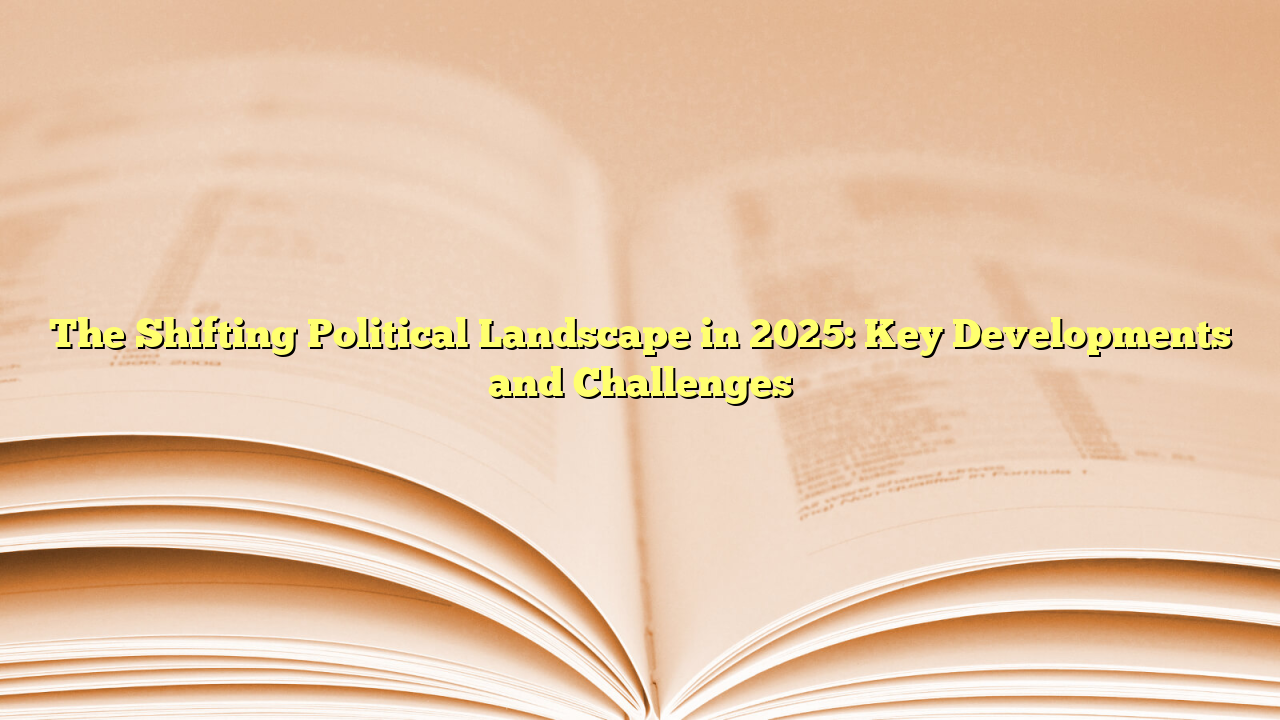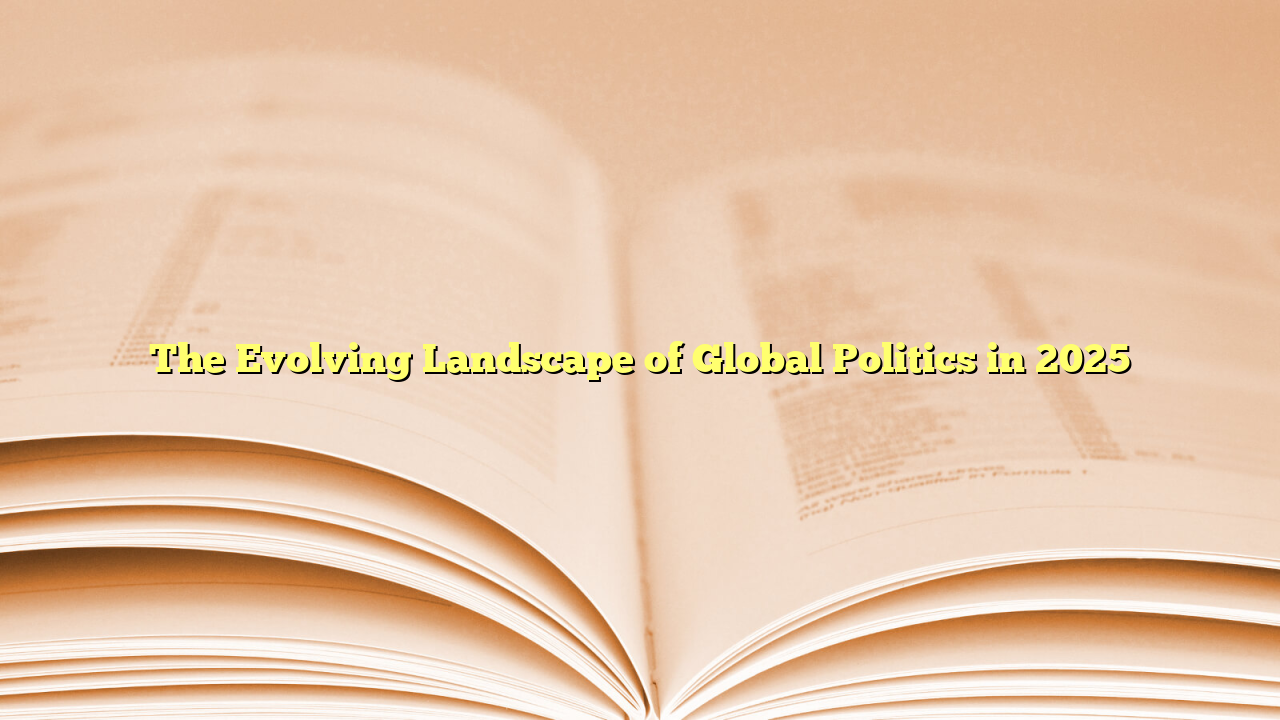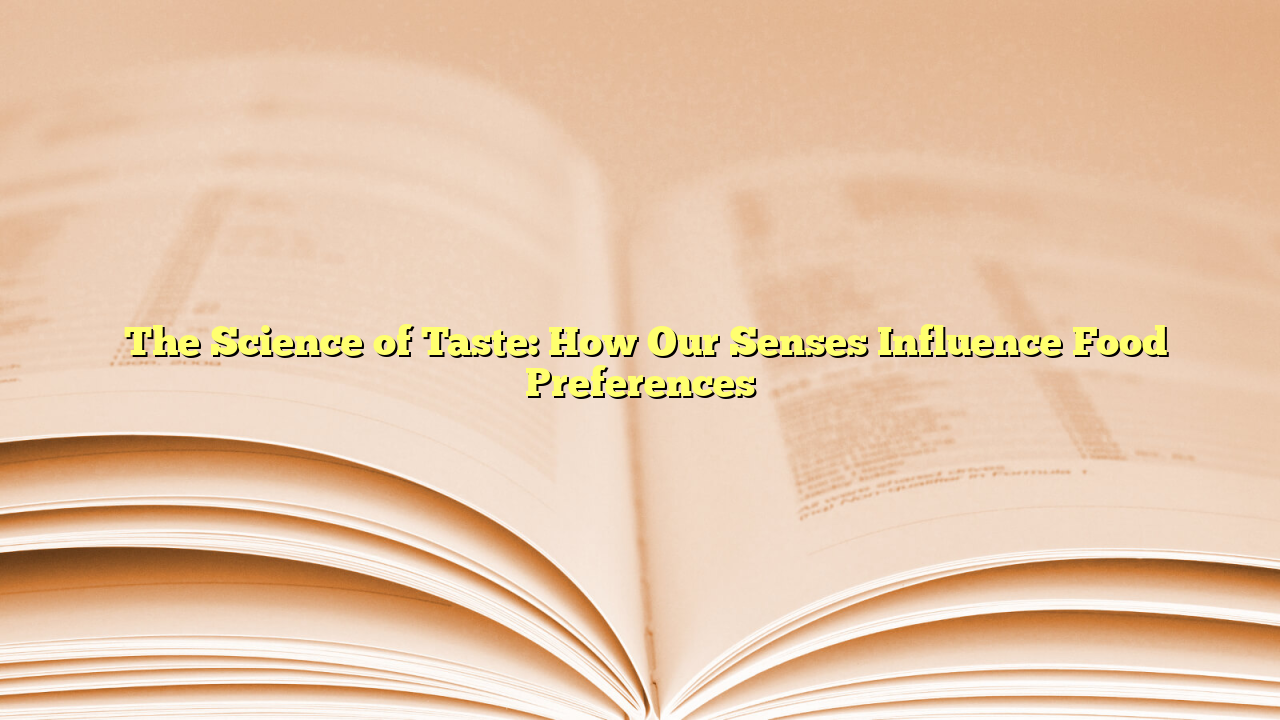In 2025, global politics is undergoing rapid transformations, driven by elections, diplomatic conflicts, economic challenges, and technological advancements. As nations adapt to new political realities, leaders are making critical decisions that will shape international relations and domestic policies for years to come. This article examines some of the most pressing political developments around the world, including elections, geopolitical tensions, economic policies, and the impact of technology on governance.
U.S. Politics: The Road to the 2025 Presidential Election
One of the most closely watched political events of the year is the U.S. presidential election. As the country continues to grapple with economic recovery, immigration challenges, and social division, voters are preparing to choose their next leader.
The election campaigns have been marked by intense debates on key issues such as inflation, taxation, healthcare, and foreign policy. The current administration is focusing on strengthening economic stability and international alliances, while opposition candidates are advocating for stricter immigration laws, deregulation of businesses, and changes in global trade policies.
Voter turnout is expected to be a decisive factor in the election outcome. With the rise of independent candidates and growing dissatisfaction with traditional party politics, there is an increasing demand for political reform. Analysts predict that the results of this election could reshape the direction of U.S. domestic and foreign policy for years to come.
Europe: Rising Nationalism and Political Shifts
Across Europe, political landscapes are shifting as governments face challenges related to migration, economic uncertainty, and security concerns. Nationalist movements are gaining traction in several countries, leading to debates over stricter border controls and national sovereignty.
The European Union (EU) is also at a crossroads, with some member states calling for reforms to its policies on trade, climate change, and digital regulation. Countries such as France and Germany are leading discussions on strengthening the EU’s defense strategy, particularly in response to increasing tensions in Eastern Europe.
Meanwhile, dewaslot69 link is navigating its post-Brexit challenges, including trade negotiations and economic recovery. As the nation seeks to redefine its global role, political parties are debating over policies that will shape the future of its economy and international partnerships.
The U.S.-China Rivalry and Global Economic Implications
The relationship between the United States and China remains a focal point of global politics in 2025. Trade disputes, technological competition, and military tensions in the Indo-Pacific region have heightened geopolitical uncertainty.
China continues to expand its influence in global markets, investing in infrastructure projects in Asia, Africa, and Latin America. Meanwhile, the U.S. has reinforced economic alliances with its partners in the Indo-Pacific region, aiming to counterbalance China’s growing power.
The Taiwan issue remains a major flashpoint, with both nations increasing military activities in the region. Diplomatic efforts are ongoing, but tensions over Taiwan’s status continue to be a source of friction between Washington and Beijing.
Despite these challenges, both countries recognize the importance of cooperation on global issues such as climate change and cybersecurity. However, competition over technological advancements, including artificial intelligence and semiconductor production, remains a key aspect of their rivalry.
The Middle East: Conflicts and Diplomatic Realignments
In the Middle East, political developments are being shaped by ongoing conflicts, economic reforms, and shifting alliances. Iran’s nuclear program remains a concern for the international community, with negotiations continuing over the possibility of a new nuclear agreement.
Saudi Arabia and the United Arab Emirates (UAE) are working to diversify their economies, investing heavily in renewable energy, tourism, and technology. At the same time, Israel’s relations with its Arab neighbors continue to evolve, with efforts to strengthen diplomatic ties despite ongoing tensions with Palestine.
Conflicts in Syria and Yemen remain unresolved, with international peace efforts facing challenges. As Middle Eastern nations navigate regional security concerns, their alliances with global powers such as the U.S., China, and Russia play a crucial role in shaping political dynamics.
The Role of Technology in Politics
The influence of technology on politics has grown significantly in recent years. Social media continues to play a major role in shaping public opinion, influencing elections, and driving political movements. However, concerns over misinformation, cybersecurity threats, and data privacy are prompting governments to introduce stricter regulations on digital platforms.
Artificial intelligence (AI) is also impacting governance, with governments using AI-driven tools for policy analysis, surveillance, and public service improvements. While AI offers opportunities for efficiency, it also raises ethical concerns regarding privacy, bias, and decision-making transparency.
As nations work to regulate emerging technologies, the balance between innovation and security remains a key challenge in global politics.
Conclusion
The political landscape in 2025 is marked by uncertainty and transformation. From the highly anticipated U.S. presidential election to geopolitical rivalries between superpowers, nations are navigating complex challenges that will shape the future of international relations.
As political leaders address economic recovery, security concerns, and technological advancements, their decisions will have lasting consequences on global stability. In a world that is increasingly interconnected, diplomacy, cooperation, and strategic policymaking will be essential in shaping the political future.
The Shifting Political Landscape in 2025: Key Developments and Challenges



